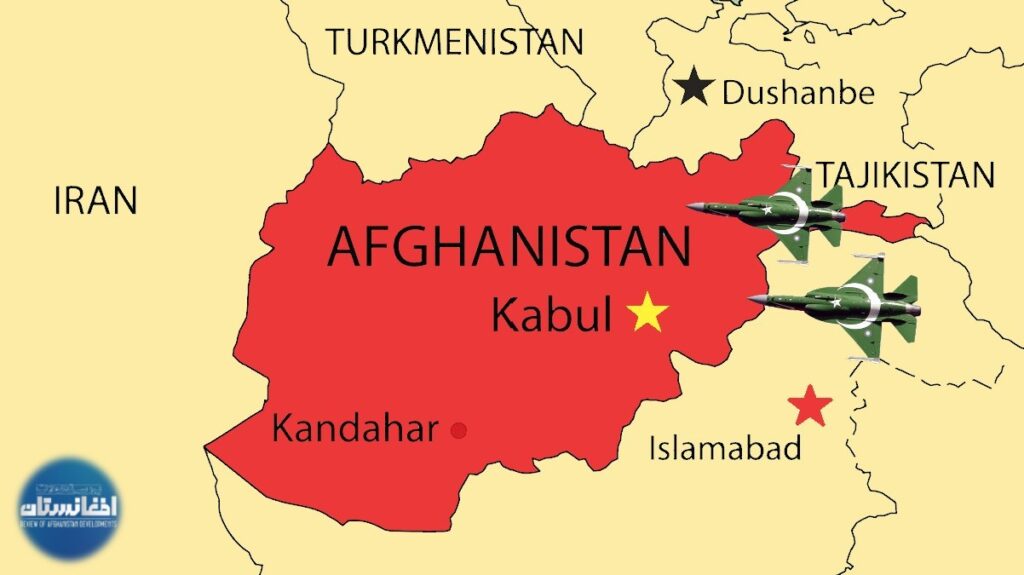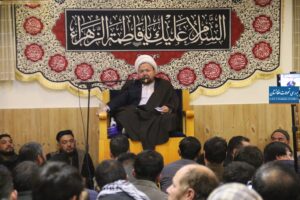Review of Afghanistan developments
On the evening of Thursday, October 9, two significant explosions took place in Kabul. Following this, news reports indicated that the Pakistani army had aimed at multiple locations in Kabul with the intention of eliminating Noor Wali Mehsud, the head of the Tehreek-e-Taliban Pakistan. Sources affiliated with the Pakistani army disclosed that the dual attack was executed against a highly valuable target, namely Noor Wali Mehsud.
Four hours later, the Pakistani Air Force executed an additional airstrike in the Barmal region of Paktika Province, Afghanistan, resulting in no casualties. Subsequently, five hours later, it targeted an area in Khost Province with bombs.
Shortly following the airstrike in Kabul, the head of the Tehreek-e-Taliban Pakistan (TTP) issued an audio message regarding his well-being, indicating that he was located in the tribal regions of Khyber Pakhtunkhwa province in Pakistan. As time progressed after the strike, Pakistani sources not only refrained from confirming the death of Noor Wali Mehsud, but also reports associated with the ISI gradually retreated from their earlier assertions. Additionally, sources affiliated with the Taliban government firmly rejected claims of Noor Wali Mehsud’s assassination.
The military of Pakistan seems to have reached a breaking point and lost their patience and is striving to regain its honor following a significant rise in assaults by the Tehreek-e-Taliban Pakistan (TTP), particularly after the recent deaths of 11 of its soldiers. Just hours prior to the airstrike on Kabul, Khawaja Asif, Pakistan’s Defense Minister, addressed the parliament, stating that the Pakistan’s patience had been exhausted and urged for a unified national response against those who offer refuge to terrorists, both within Afghanistan and Pakistan.
The target of the Pakistani airstrike and the consequences
The airstrike conducted by Pakistan on Kabul aimed to accomplish two significant objectives: firstly, to demonstrate the existence of Noor Wali Mehsud in Afghanistan and the backing he receives from the Taliban government, and secondly, to restore its tarnished reputation in the conflict against the Tehreek-e-Taliban Pakistan by eliminating him. Nevertheless, it appears that the military leaders of Pakistan have committed a strategic error with this unsuccessful operation, which is likely to result in severe repercussions for the country.
The initial outcome of this airstrike on Kabul is the revelation of the vulnerabilities within the intelligence of the Pakistani military. The intelligence and military agencies of Pakistan orchestrated a contentious operation based on misleading information. It is possible that the Pakistani military aimed to enhance its credibility by mimicking the operation that led to the assassination of Osama bin Laden; however, it ultimately resulted in a detrimental impact on its reputation.
The second consequence involves the diminishing strength of the Pakistani narrative concerning the existence of Tehreek-e-Taliban Pakistan leaders on Afghan territory. As a result of the frequent reiteration of this assertion on international platforms, nearly the entire global community has embraced this Pakistani perspective. This assault was executed with the intention of removing Tehreek-e-Taliban Pakistan leader Noor Wali Mehsud, whom Pakistani authorities have consistently alleged to be concealed in Kabul; however, the strike on Kabul and the unsuccessful operation significantly undermine this Pakistani narrative.

The third consequence pertains to the timing of the attack, which was not diplomatically favorable. The airstrike took place during the official visit of Amir Khan Muttaqi, the Taliban’s foreign minister, to India. Numerous analysts are likely to link the timing to Pakistan’s displeasure regarding the closeness of Kabul and Delhi. In essence, an airstrike on Kabul would be interpreted as a caution to Kabul rather than a counter-terrorism action.
The fourth consequence pertains to the assault by the Pakistani army on Kabul. In the past, the Pakistani military had conducted airstrikes in the border regions of Afghanistan, justifying these actions by claiming to target armed opposition bases. However, on Thursday night, for the first time in Afghanistan’s history, Pakistan launched an airstrike on the Afghan capital. This event is poised to usher in a new phase in the diplomatic relations between Afghanistan and Pakistan. The airstrike by Pakistan on Kabul, which is the capital of Afghanistan, is expected to have a detrimental impact on public sentiment within Afghanistan and will further tarnish the country’s image among its citizens.
The fifth consequence will be the Taliban government’s resolve to establish closer ties with India. The Taliban government, represented by a delegate currently visiting Delhi for six days, will pursue deeper relations with Pakistan’s adversary more assertively, and may even succeed in this endeavor as Pakistan seeks to balance power.
The fifth consequence will be the Taliban government’s resolve to strengthen ties with India. The Taliban government, represented by a delegate currently in Delhi for a six-day visit, may even pursue closer relations with Pakistan’s rival, as a strategy to balance power.
The sixth consequence pertains to the retaliatory measures taken by the Taliban government. Despite the Taliban government’s lack of adequate military strength to execute comparable actions, this assault is expected to further empower the anti-Pakistani elements within the Taliban government, prompting them to adopt a more confrontational approach towards the Pakistani army, which may consequently foster support for any disturbances occurring in Pakistan.
Related Articles
China’s Capacity to easeTensions Between Pakistan – Taliban
The Ups and Downs of Pakistan-Taliban Relations
Conclusion
Pakistan’s airstrike on Kabul was intended to eliminate the leader of the Tehreek-e-Taliban Pakistan (TTP). This operation aimed to restore its image domestically and strengthen its influence internationally. However, it not only failed to accomplish these objectives but also resulted in negative repercussions for the country, particularly for the Pakistani military.
The policies of the Pakistani military regarding Afghanistan in recent decades demonstrate that resolving differences with Kabul cannot be achieved through militarism and backing militants; instead, it should adhere to a diplomatic approach grounded in equality.

















